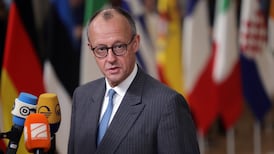When German investigators raided the Munich home of a German foreign intelligence (BND) employee, they didn’t find a secret radio transmitter or directions to a dead-letter drop in invisible ink.
Instead they found a computer with a manipulated weather app. Check the weather in New York, according to reports, and an encryption application popped open.
This is one of the routes the 31-year-old agent from the BND’s foreign department is believed to have used to transmit classified documents to US intelligence, with unconfirmed reports putting their number at more than 200.
The BND official, said to be partially sighted and at the agency for nine years, reportedly began his career as a double agent two years ago when he sent a mail to the US embassy offering to sell them documents.
Since then, he is believed to have handed the documents via encrypted emails and on USB sticks during meetings in Vienna. Unconfirmed reports said the agent had access to information on all of the BND’s foreign operations and agent identities – as well as documents on a Berlin parliamentary inquiry into National Security Agency (NSA) surveillance.
‘That’s enough’
President
Joachim Gauck
didn’t mince his words in an interview yesterday, calling the relationship with the US under serious strain. “If this comes out as we [think] it really jeopardises a friendship, a close bond,” he told ZDF public television. “It’s time to say: that’s enough.”
On Friday the US ambassador to Germany, John Emerson, was summoned in to the foreign ministry and told that Berlin expected answers.
With the US still declining to comment on the affair, German interior minister Thomas de Maizière said yesterday he expected the US government to provide “quick, clear answers”. “This affair has to be sorted out quickly,” he told German television.
Chancellor Angela Merkel, who learned of the claims last Thursday, is on a trade mission to China. Journalists travelling with her described her as being surprised and disappointed by the revelations.
The whole spying scandal only came to light by accident after the BND official sent a mail to the Russian embassy on May 28th, offering to sell BND documents to Russian intelligence. The mail was intercepted by Germany’s domestic intelligence (BfV). They sent a fake reply, pretending to be a Russian agent, but got no response.
The BfV then contacted US intelligence, requesting information on the German mole’s Gmail account. They got no response from their US counterparts and eventually tracked him down within the BND.
When they arrested him on Wednesday, it was under suspicion of selling secrets to Moscow. But in an interrogation session he insisted his partner was the CIA and he had earned a reported €25,000 in three separate file handovers.
Over the weekend, German domestic and foreign intelligence officers worked to establish a full picture of the double agent’s access – and the scale of the damage.
"All the evidence suggests that he was working for the Americans," said a senior security official to the Frankfurter Allgemeine's Sunday edition.
After a year of revelations of NSA spying from whistleblower Edward Snowden, including a US tap on Dr Merkel's mobile phone, this is just the latest bombshell to leave political Berlin shocked.
German officials said yesterday the affair threatened to derail bilateral relations already strained by previous surveillance efforts.















